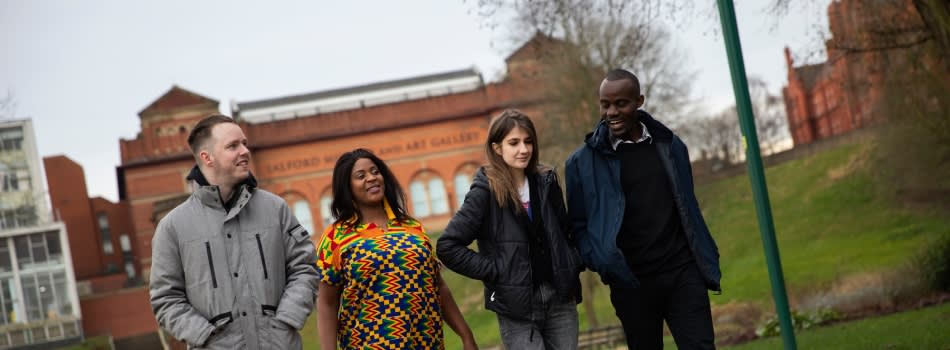About the Project
The studentship is funded by Kidscan, children’s cancer research charity.
Academic Supervisors: Dr D.J. Greensmith
The studentship is fully funded and includes:
• A fee waiver
• A tax-free stipend of £14,553 for three years (2018-19 figure)
• All bench fees and consumable costs
Final date for applications: 30th June 2019
Interviews will be held in July 2019.
The candidate should be able to register at the University of Salford by 23rd September 2019.
Description
The UK alone sees approximately 1800 new childhood cancer cases annually. Survival rate now exceeds 80% which is largely attributable to the anthracycline family of anti-cancer drugs. However, anthracyclines can produce considerable late cardiotoxic effects whereby survivors of childhood cancer go on to develop and even die from heart failure later in life [1, 2]. As we do not currently have enough alternative cancer drugs to simply stop using anthracyclines, we need to develop co-treatment strategies that prevent anthracycline-related heart failure. To do this, we need to fully understand how anthracyclines affect heart cells.
Cardiac muscle is formed by billions of heart cells (cardiac myocytes) and their simultaneous and perpetual contraction and relaxation underlies cardiac pump function. On each heart beat and in each cell a cyclical rise and fall of cytoplasmic calcium (the Ca transient) produces cellular contraction then relaxation (the contractility transient) and so generation of mechanical force [3]. The Ca transient is dependent on the activity of many specialised proteins such as calcium channels, pumps and exchangers. Combined, the sequence of events that take the electrical excitation of a myocyte to its contraction is known as excitation-contraction coupling (ECC) and forms the cellular basis of cardiac function [4].
Remarkably, though we have known of anthracycline cardiotoxicity for almost 50 years, the exact cellular mechanisms remain unclear. Most existing research and understanding is centred around elevated reactive oxygen species (ROS) production thence oxidative stress [5]. Recent evidence also suggests that anthracyclines alter excitation-contraction coupling [6]. However, precisely how remains unclear, as does the dependence of those alterations on oxidative stress. If we can determine exactly how anthracyclines alter ECC, and to what extent those alterations are dependent on oxidative stress, we may be able to design co-treatment strategies that prevent or attenuate anthracycline-induced heart failure. As such, this fully funded PhD studentship will address the following questions:
1. What are the effects of anthracyclines on cardiac cellular excitation-contraction coupling?
2. To what extent are any effects on excitation-contraction coupling dependent on oxidative stress?
3. What are the anthracycline-mediated sources of intracellular reactive oxygen species?
4. Can anthracycline-mediated cell dysfunction be pharmacologically prevented?
To answer these questions, you will develop expertise in a range of state-of-the-art techniques including real-time photometric measurement of intracellular calcium and oxidative stress using conventional and confocal microscopy, video cell contractility measurement and single-cell patch clamping. You will join a recognised and effective research group and collaborate with scientists who are considered world-leading in the field of cardiac cellular physiology.
Enquiries: Informal enquires may be made to Dr David Greensmith by email: [Email Address Removed]
http://www.seek.salford.ac.uk/profiles/DJGreensmith.jsp
References
[1] J.V. McGowan, R. Chung, A. Maulik, I. Piotrowska, J.M. Walker, D.M. Yellon, Anthracycline Chemotherapy and Cardiotoxicity, Cardiovascular drugs and therapy, 31 (2017) 63-75.
[2] J. Akam-Venkata, V.I. Franco, S.E. Lipshultz, Late Cardiotoxicity: Issues for Childhood Cancer Survivors, Current Treatment Options in Cardiovascular Medicine, 18 (2016) 47.
[3] D.A. Eisner, J.L. Caldwell, K. Kistamás, A.W. Trafford, Calcium and Excitation-Contraction Coupling in the Heart, Circulation research, 121 (2017) 181.
[4] D.M. Bers, Cardiac excitation-contraction coupling, Nature, 415 (2002) 198-205.
[5] T. Šimůnek, M. Štěrba, O. Popelová, M. Adamcová, R. Hrdina, V. Geršl, Anthracycline-induced cardiotoxicity: Overview of studies examining the roles of oxidative stress and free cellular iron, Pharmacological Reports, 61 (2009) 154-171.
[6] A. Llach, M. Mazevet, P. Mateo, O. Villejouvert, A. Ridoux, C. Rucker-Martin, M. Ribeiro, R. Fischmeister, B. Crozatier, J.-P. Benitah, E. Morel, A.M. Gómez, Progression of excitation-contraction coupling defects in doxorubicin cardiotoxicity, Journal of molecular and cellular cardiology, 126 (2019) 129-139.

 Continue with Facebook
Continue with Facebook


